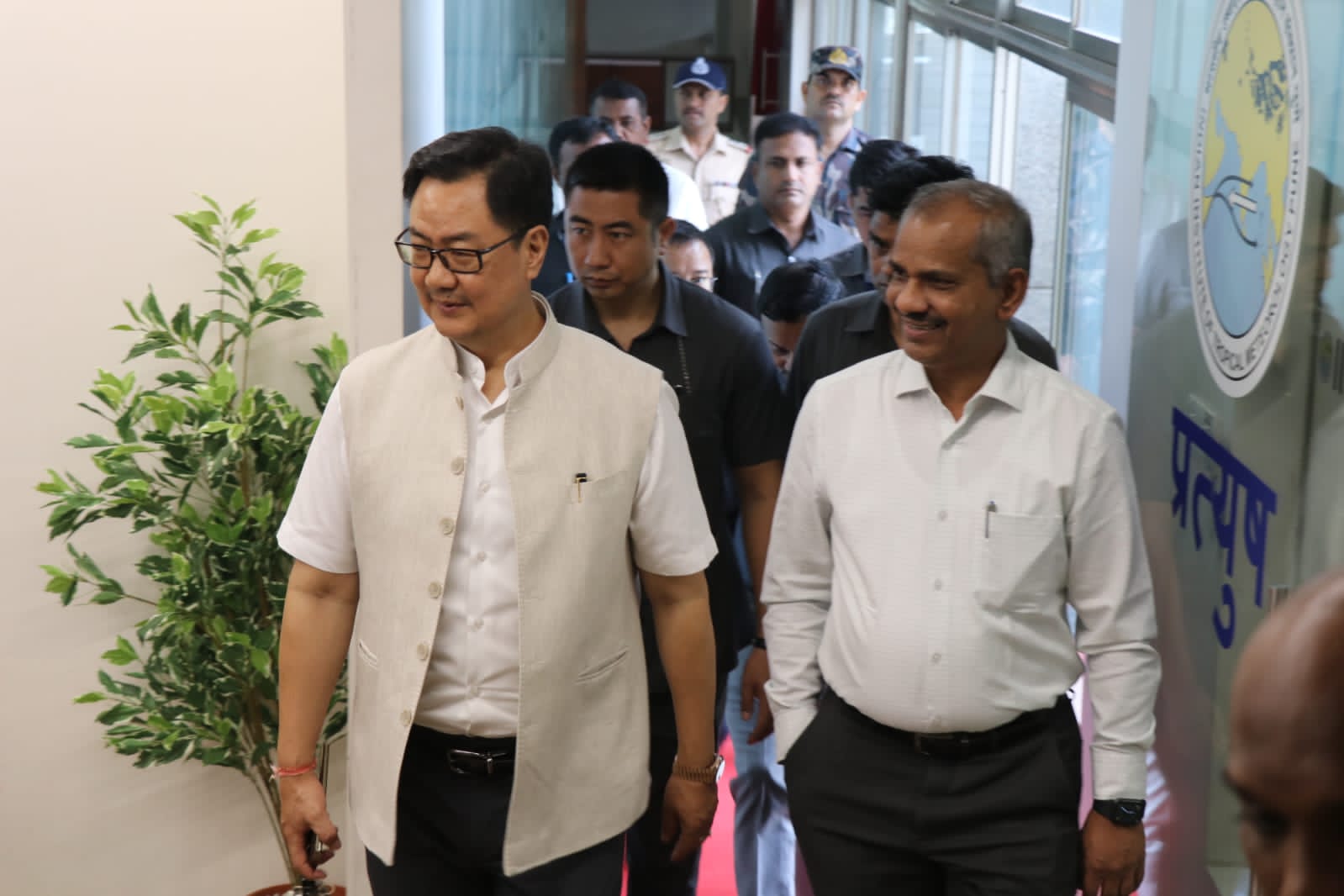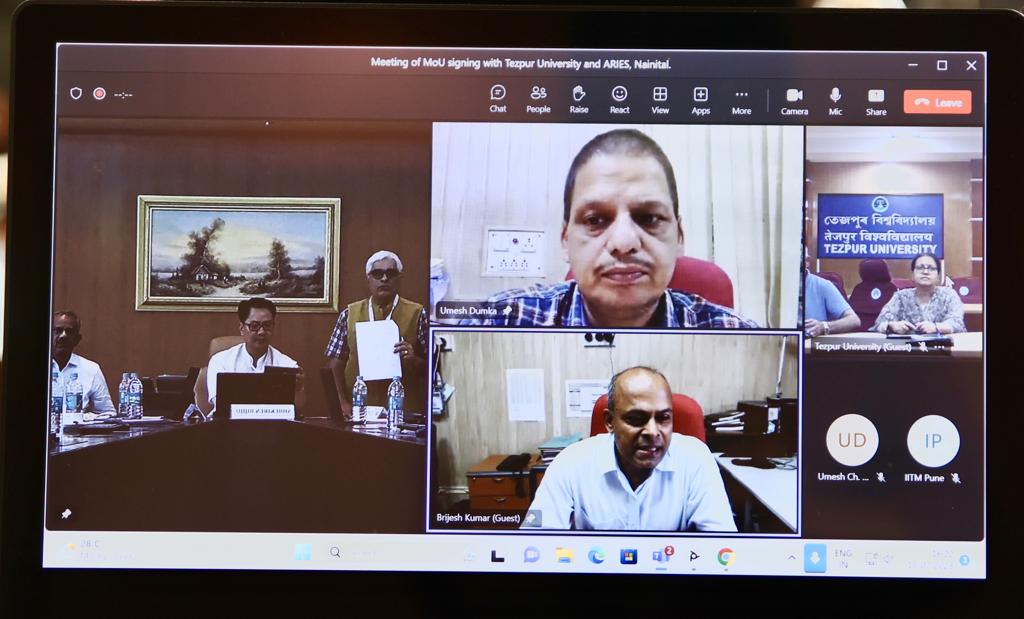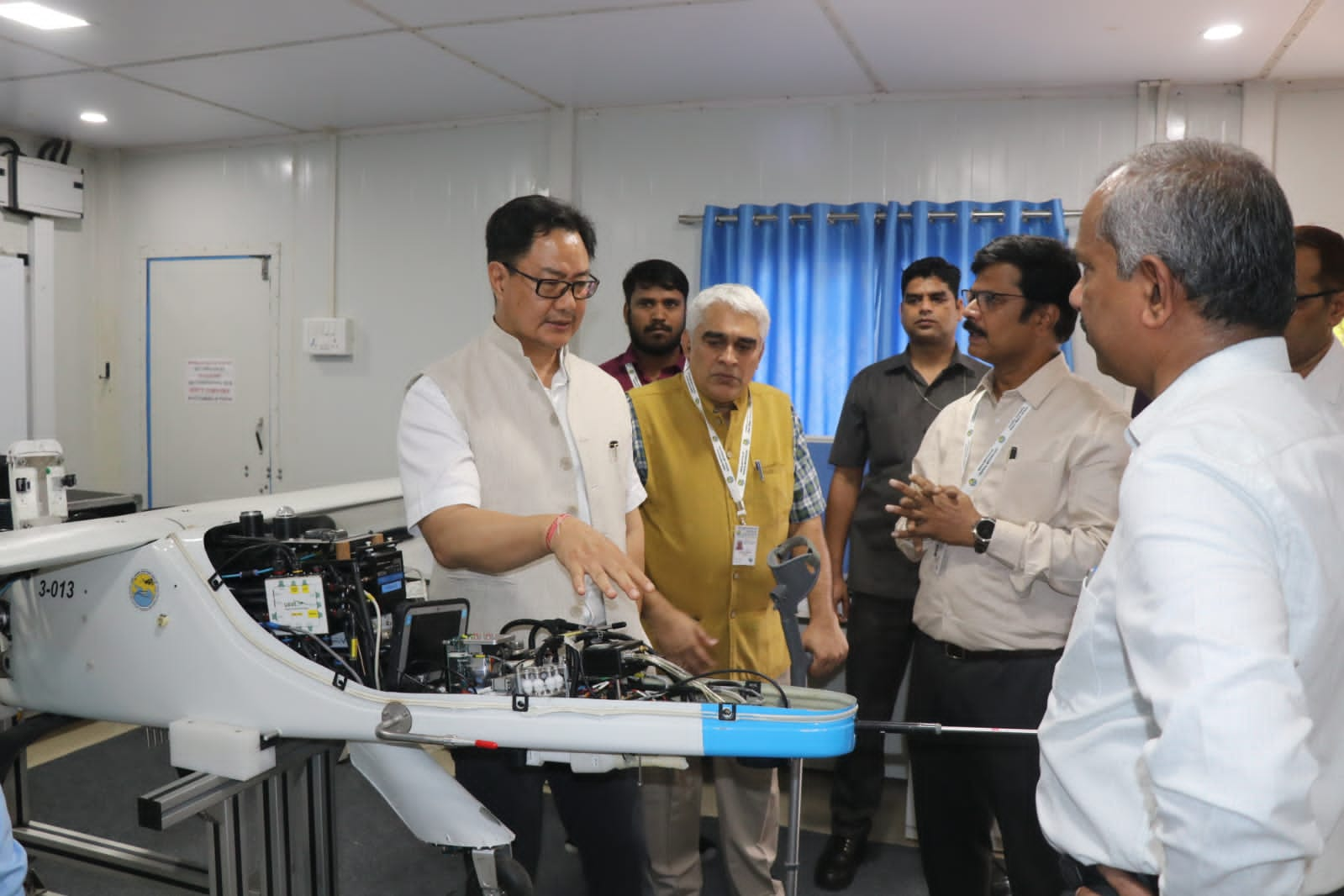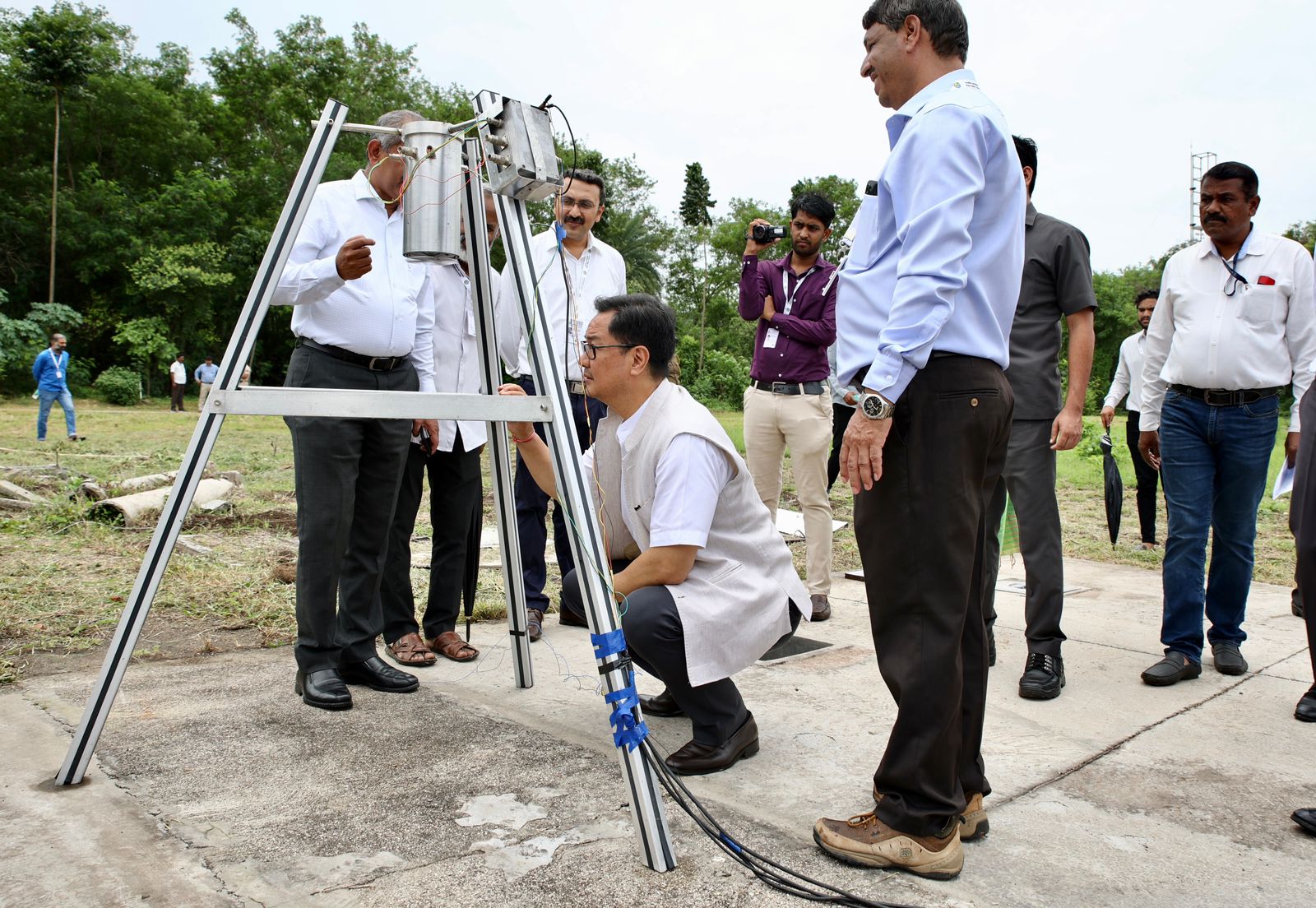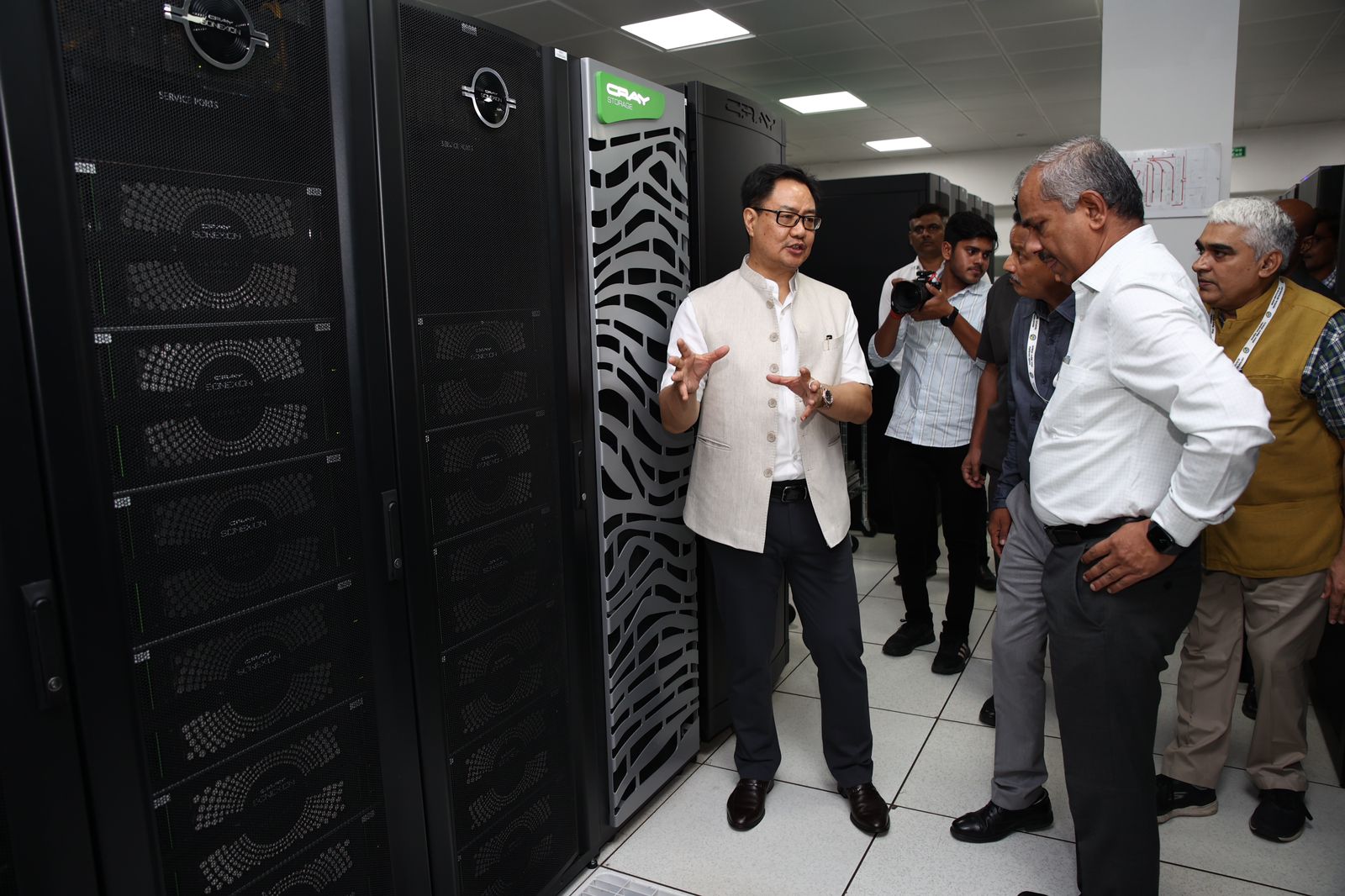Union Minister of Earth Sciences Kiren Rijiju visits the Indian Institute of Tropical Meteorology (IITM), Pune
The Union Minister of Earth Sciences Kiren Rijiju visited the Indian Institute of Tropical Meteorology (IITM), Pune, today. The Union Minister went around all the laboratories and gathered detailed information about all the research projects going on in the institute, which is an autonomous body under the Ministry of Earth Sciences (MoES). He witnessed the functioning of the Pratyush supercomputer, cloud stimulation, lightning phenomenon and other studies which are being carried out in the institute.
On this occasion, signing of two MoUs between IITM Pune and Tezpur University and and ARIES, Nainital took place in front of the Union Earth Sciences Minister. The partnerships aims to pool expertise, resources and research capabilities to address environmental challenges and develop effective solutions. The MoU between Director, Indian Institute of Tropical Meteorology (IITM), Pune and Registrar, Tezpur University, Tezpur, Assam is for promotion of collaborative research on biosphere-atmosphere exchange of Greenhouse Gases and Energy Fluxes being monitored at the Kaziranga National Park, Assam. The MoU between Director, Indian Institute of Tropical Meteorology (IITM), Pune and Registrar, Aryabhatta Research Institute of Observational Sciences (ARIES), Nainital, Uttarakhand, for promotion of collaborative research on biosphere-atmosphere exchange of Greenhouse Gases and Energy Fluxes being initiated at Devasthal, near Nainital, Uttarakhand.
Speaking on the occasion, the Earth Sciences Minister said, our scientists and research scholars have made India a leading nation in terms of climate and weather research. Our scientific community is a part of various international collaborations, he added. The world has great regards and trusts Indian scientists, who are big players in the global arena, the Minister said. Right from Himalayan region to peninsular India and also to the rest of the world, India is providing weather information, including tsunami warning system, cyclone and heavy rainfall prediction system and others.
He said that India is also a leading nation in terms of climate science and has committed towards all the international protocols related to climate change. Citizens are directly benefitted by the tremendous works done by the scientists. Climate related mitigation works carried out in the country are backed by data and researches in various institutes around the country, he further stated. He also said climatic behaviour is changing very fast; weather conditions are extremely erratic these days. Our science has to catch up with the changing patterns, he added. Very soon, we will have a more powerful supercomputer that will help us to go further deep in terms of our forecast capacity and study of various aspects of climate and weather conditions, he further informed.
He said that IITM is a leading institute engaged in the study of climate change. The campus and facilities here are world class, he added. IITM Pune has made India proud and will remain a backbone for India further research in climate change, stated the Union Earth Sciences Minister.
The Earth Sciences Minister said that National Centre for Medium Range Weather Forecasting (NCMRWF) is also doing a fantastic job in weather forecasting. It is linked with IITM, Pune where all weather researches, weather modelling etc are done.
Union Earth Sciences Minister Kiren Rijiu also said that India will very soon start round-the-clock manning of its Arctic Station ‘Himadri’. Presently, while Indian scientists remain in charge of it in the summers, the Norwegian Polar Institute is given all equipment and facilities to manage it in the winters. The Union Minister said that technical negotiations have been done by the team led by Dr. M. Ravichandran, Secretary, Ministry of Earth Sciences. “Maybe by next season, India will permanently man its Arctic Station Himadri”, he said.
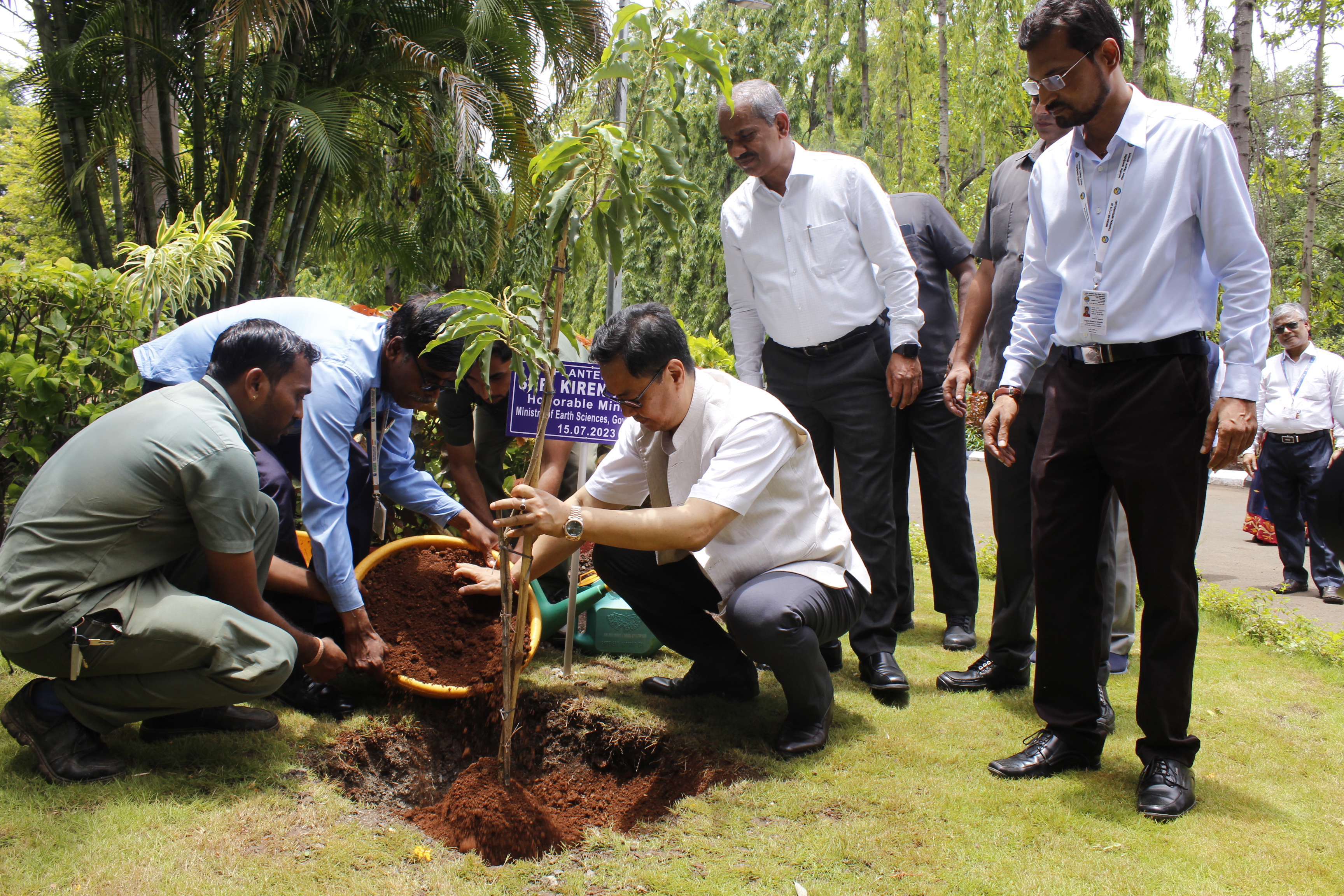
The Union Minister further stated that India is taking huge strides in triosphere studies. He himself visited Himadri, the Arctic Research Station at Svalbard and experienced the marvellous job being done by Indian scientists and scholars over there. The Union Minister also interacted with the expedition team of Antarctica where India has two stations, namely Maitri and Bharati, which are very well managed. India also has a high altitude research station in Himalaya called HIMANSH, situated above 13,500 ft at a remote region in Spiti, Himachal Pradesh.
Kiren Rijiju also said that our scientists are also gearing up so as not to let India down as a leading and growing economy. In this connection, he stated that the Ministry of Earth Sciences also has a mandate of studying the deep oceans, its geology, seismology etc. as this is still kind of an unknown territory. India’s Deep Ocean Mission is progressing in a positive manner, he informed. It has a direct connection with Blue Economy and thus is going to play a very important role in the country’s future economic growth, stated the Earth Sciences Minister.
The Union Minister also informed about various projects. The National Institute of Ocean Technology is developing a desalination plant for turning sea water into fresh water at Kavaratti, Lakshadweep. A deep water manned submersible being developed by NIOT Chennai. MoES and the Indian National Centre for Ocean Information Services (INCOIS) are conducting awareness workshops to guide the fishing community on Ocean Information and Advisory Services at various places.
The Secretary, Ministry of Earth Sciences, Dr. M. Ravichandran; Director of IITM, Pune Dr. R. Krishnan, along with IITM scientists and officials were also present on the occasion. The Union Earth Sciences Minister also launched Indradhanush Patrika on the occasion.


